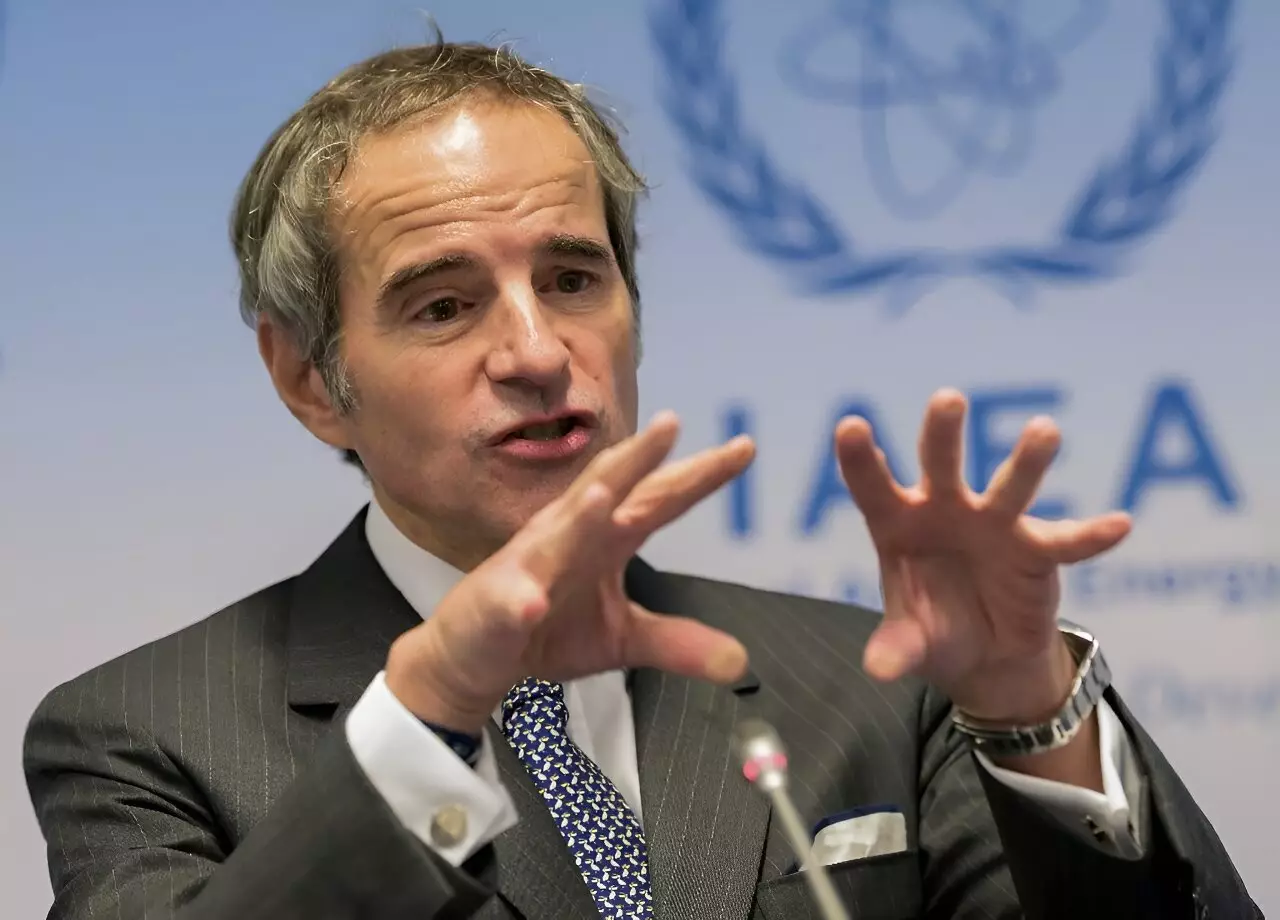In recent years, the global conversation on nuclear power has become increasingly polarized. While proponents argue that nuclear energy is a crucial and reliable source of emissions-free power, detractors highlight the risks and high costs associated with large-scale nuclear projects. Amidst this ongoing debate, Rafael Grossi, head of the International Atomic Energy Agency (IAEA), cautions against rejecting nuclear power solely based on the setbacks faced by a few projects. In an interview with AFP at the COP28 conference in Dubai, Grossi emphasizes the importance of understanding the challenges and opportunities that nuclear power presents for tackling global warming.
During the COP28 conference, a coalition of major countries is expected to call for the tripling of nuclear power capacity by 2050 as part of their strategy to combat climate change. The proponents argue that nuclear power can provide a reliable, emissions-free energy source that complements the intermittent nature of renewable energy. However, critics raise concerns about the financial costs and safety risks associated with nuclear projects, especially in light of the falling prices of renewable energies.
Grossi acknowledges that there is work to be done in addressing the financing needs of countries that wish to extend their nuclear fleets. Brazil, Argentina, South Africa, Morocco, Senegal, Kenya, and the Philippines are among the nations considering or actively pursuing nuclear energy. However, some international lending organizations have policies that oppose financing nuclear projects. Grossi, seeing the outdated nature of such policies, believes they no longer align with scientific or technological criteria. He hopes for an evolution in their thinking and encourages the reconsideration of nuclear power as a viable option.
The nuclear industry is placing significant hope in small modular reactors (SMRs) as a solution to the challenges faced by larger, more complex nuclear projects. While these reactors are less powerful, they offer the advantage of easier construction. However, concerns arise regarding the ability of less developed countries to ensure the safety of SMRs and prevent the spread of nuclear weapons technology. Grossi reassures skeptics that the IAEA exists precisely to address these concerns. Any country seeking to develop a nuclear program must follow a comprehensive procedure and establish an agreement with the agency, minimizing the risks of proliferation.
Grossi highlights the example of the United Arab Emirates (UAE) to demonstrate the potential of nuclear power. A decade ago, the UAE had no nuclear capability, but today, with four reactors, it meets a significant portion of its electricity demands. The successful implementation of nuclear power in the UAE required adherence to a rigorous 19-step process, which included the establishment of an independent supervisory body. This example showcases how countries can navigate the challenges associated with nuclear power and successfully harness its benefits.
Critics of nuclear power often cite incidents like the destabilization of Ukraine’s reactors during Russia’s invasion as evidence against its use. However, Grossi argues that the problem in such situations is war itself, not nuclear power. While acknowledging the inherent risks, he highlights that nuclear power plants, when properly regulated and equipped with safety measures, pose no disproportionate danger compared to other industrial installations.
In a rapidly evolving world facing the challenges of climate change, the debate over the future of nuclear power continues to intensify. Grossi stresses that dismissing nuclear power entirely due to setbacks faced by a few projects would be an error. It is crucial to assess the risks and rewards of nuclear energy holistically, considering its potential to provide a consistent, low-carbon power source. The evolution of small modular reactors, stringent safety measures, and international regulatory frameworks offer avenues for addressing concerns and creating a sustainable future with nuclear power.
As the world grapples with the urgent need to reduce greenhouse gas emissions and combat climate change, nuclear power holds promise as a reliable and emissions-free energy source. However, it is imperative that countries and international organizations work together to address the challenges associated with nuclear power, including financing, safety, and proliferation concerns. By embracing innovation, fostering cooperation, and ensuring robust regulatory frameworks, the world can harness the potential of nuclear energy while mitigating its risks. The ongoing dialogue and critical analysis surrounding nuclear power will be vital in determining its role in shaping the future of our planet.


Leave a Reply